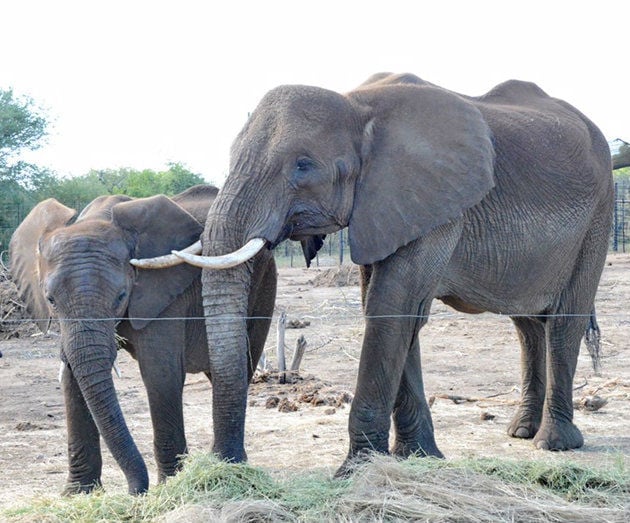There aren't nearly as many African elephants as there used to be in Africa, but there's also a lot less land to support them.
This week, a small herd of African elephants left their native Swaziland, beginning a globe-spanning journey that ended at Omaha's Henry Doorly Zoo. The six elephants - five females and a male - are part of a group of seventeen animals that was slated for culling before the decision was made to ship them to American zoos. Besides Omaha, Dallas Zoo and Sedgwick County Zoo will also be receiving elephants.
The decision has, to put it lightly, been controversial. Some animal rights groups have expressed outrage at the move, casting doubt over the conservation and science behind the importation and suggesting that Swaziland flat-out sold its elephants for profit. Other conservations have said that the move was essential - drought in southern Africa has resulted in severe food shortages in protected areas; elephants are nature's bulldozers and can quickly turn forest into grassland into desert. Among the species being negatively impacted by this loss of habitat are rhinos. Faced with the prospect of whether the reserves should have elephants or rhinos, Swaziland chose rhinos.

Two of the Swazi elephants coming to Omaha (www.omaha.com)
Now, you could argue (as even some keepers do) that elephants don't belong in zoos and that they do best in their natural habitat. But you could also argue that they don't belong in protected areas too small to sustain populations of elephants and other native herbivores, and that nothing about this situation is natural. The wild (such as it is these days) is not some happy paradise where animals frolic about carefree. It's characterized by drought, famine, predators, and, increasingly humans who don't want to share it with animals.
I personally find the argument that Omaha and the other zoos only want the elephants "for profit" to be pretty illogical. There are already enough African elephants in US zoos to satisfy exhibit needs. What is the benefit of getting more of them? If a zoo currently displays three elephants, do they think visitors are going to line up at the gate and pay more to see six or seven elephants? The goal instead is to create a sustainable captive population in this country... because Africa seems to be one of the less-safe places to be an elephant these days.
As to the animals themselves, they seem to be settling in well. Experience based on other recent relocations of wild elephants to American zoos (detailed in Zoo Story: Life in the Garden of Captives) suggests that they will adjust comfortably, ideally breeding. Meanwhile, Omaha is preparing to unveil a new African grasslands exhibit to house the elephants, one that's larger than some zoos I've visited.
It's not Africa. But that being said, Africa isn't really Africa these days either.
No comments:
Post a Comment